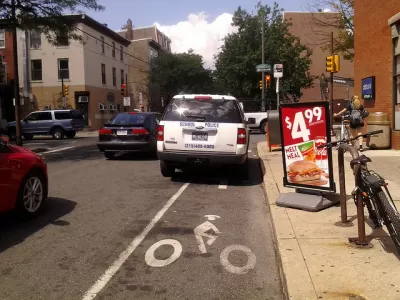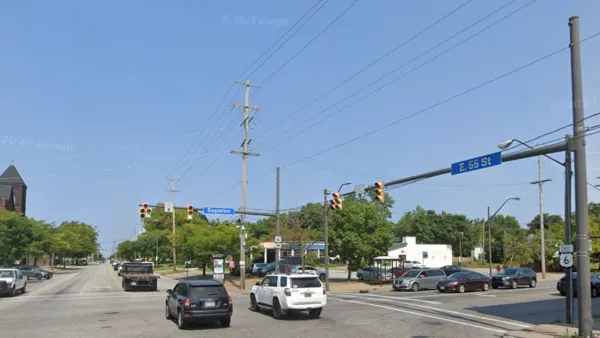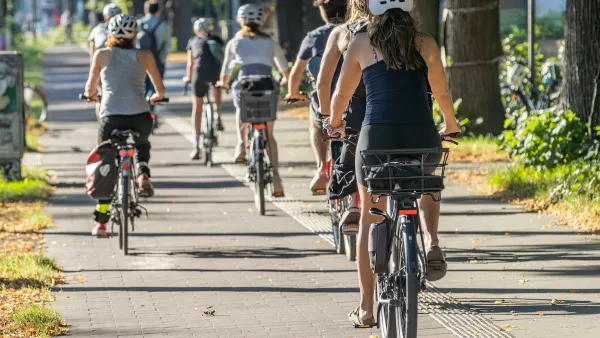Recent proposals that would reward citizens for reporting bike lane violations could further damage social cohesion and create a ‘narc economy.’

In an opinion piece for Streetsblog NYC, MJ Barnett cautions against ‘narc urbanism,’ the emerging trend of new laws that essentially put a bounty on reporting illegal behavior such as blocking a bike lane.
In New York City, a proposed law would let residents earn a percentage of citation revenue if they report a blocked bike lane, a proposal similar to an existing law that created a similar program for reporting idling trucks to prevent air pollution.
For Barnett, this ‘citizen-led surveillance’ is not the solution.
American society is already fractious enough: interpersonal trust is sharply deteriorating as real-world social networks decline, and rising distrust in our institutions and media make consensus increasingly challenging. Bills like Intro 501 further the trend toward mutual mistrust, hardening existing us-versus-them dynamics in our shared public spaces by creating a narc economy with serious financial incentives and penalties.
Such laws, Barnett argues, are a perversion of Jane Jacobs’ ‘eyes on the street’ concept, turning mutual protection into vigilante justice. Additionally, “Deputizing citizens to address traffic violations also implicates the many ethical issues attendant to privatized and citizen-led law enforcement,” pointing to America’s “long history of errant and racially biased community policing.”
As Barnett points out, blocking a bike lane is already illegal. Laws like Intro 501 allows the NYPD to shirk its duties and pass off responsibility to ordinary citizens rather than address the root problem. To solve urban problems, Barnett argues, “we’re going to need leaders willing to leverage the power of the state to do what’s right, even when it’s difficult.”
FULL STORY: Opinion: Here’s Why I am Against ‘Narc Urbanism’

Maui's Vacation Rental Debate Turns Ugly
Verbal attacks, misinformation campaigns and fistfights plague a high-stakes debate to convert thousands of vacation rentals into long-term housing.

Planetizen Federal Action Tracker
A weekly monitor of how Trump’s orders and actions are impacting planners and planning in America.

In Urban Planning, AI Prompting Could be the New Design Thinking
Creativity has long been key to great urban design. What if we see AI as our new creative partner?

King County Supportive Housing Program Offers Hope for Unhoused Residents
The county is taking a ‘Housing First’ approach that prioritizes getting people into housing, then offering wraparound supportive services.

Researchers Use AI to Get Clearer Picture of US Housing
Analysts are using artificial intelligence to supercharge their research by allowing them to comb through data faster. Though these AI tools can be error prone, they save time and housing researchers are optimistic about the future.

Making Shared Micromobility More Inclusive
Cities and shared mobility system operators can do more to include people with disabilities in planning and operations, per a new report.
Urban Design for Planners 1: Software Tools
This six-course series explores essential urban design concepts using open source software and equips planners with the tools they need to participate fully in the urban design process.
Planning for Universal Design
Learn the tools for implementing Universal Design in planning regulations.
planning NEXT
Appalachian Highlands Housing Partners
Mpact (founded as Rail~Volution)
City of Camden Redevelopment Agency
City of Astoria
City of Portland
City of Laramie





























